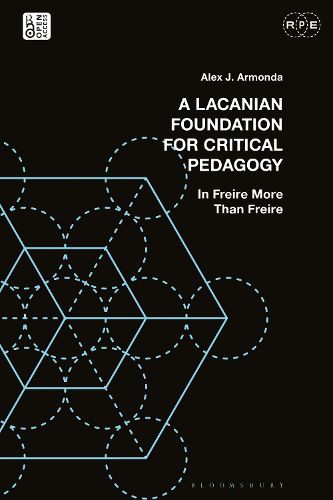Readings Newsletter
Become a Readings Member to make your shopping experience even easier.
Sign in or sign up for free!
You’re not far away from qualifying for FREE standard shipping within Australia
You’ve qualified for FREE standard shipping within Australia
The cart is loading…






This open access book sets out from Paulo Freire's claim that the problem-posing model of education works as a "kind of psychoanalysis," and deploys a Lacanian perspective to rearticulate the theoretical and practical principles of critical pedagogy.
Attending to the latent psychoanalytic sensibility of Freire's project, Armonda brings this dimension to the surface, while clearly addressing its consequences for pedagogical experience. Armonda challenges long-standing assumptions on Freire and the nature of his problem-posing intervention, as the unconscious comes to the fore as the persistent, traumatic, and uncanny site of Freirean teaching. Drawing primarily on the work of Jaques Lacan as well as Frantz Fanon, Alenka Zupancic, and Slavoj Zizek, this book offers a critical introduction to psychoanalysis in the social, political, and philosophical foundations of education. The book extends an invitation to those in the tradition of critical pedagogy to grapple with this neglected dimension in Freire's thought, and stands as an unapologetic call to return to his most subversive propositions on teaching.
The ebook editions of this book are available open access under a CC BY-NC-ND 4.0 licence on www.bloomsburycollections.com.
$9.00 standard shipping within Australia
FREE standard shipping within Australia for orders over $100.00
Express & International shipping calculated at checkout
This open access book sets out from Paulo Freire's claim that the problem-posing model of education works as a "kind of psychoanalysis," and deploys a Lacanian perspective to rearticulate the theoretical and practical principles of critical pedagogy.
Attending to the latent psychoanalytic sensibility of Freire's project, Armonda brings this dimension to the surface, while clearly addressing its consequences for pedagogical experience. Armonda challenges long-standing assumptions on Freire and the nature of his problem-posing intervention, as the unconscious comes to the fore as the persistent, traumatic, and uncanny site of Freirean teaching. Drawing primarily on the work of Jaques Lacan as well as Frantz Fanon, Alenka Zupancic, and Slavoj Zizek, this book offers a critical introduction to psychoanalysis in the social, political, and philosophical foundations of education. The book extends an invitation to those in the tradition of critical pedagogy to grapple with this neglected dimension in Freire's thought, and stands as an unapologetic call to return to his most subversive propositions on teaching.
The ebook editions of this book are available open access under a CC BY-NC-ND 4.0 licence on www.bloomsburycollections.com.